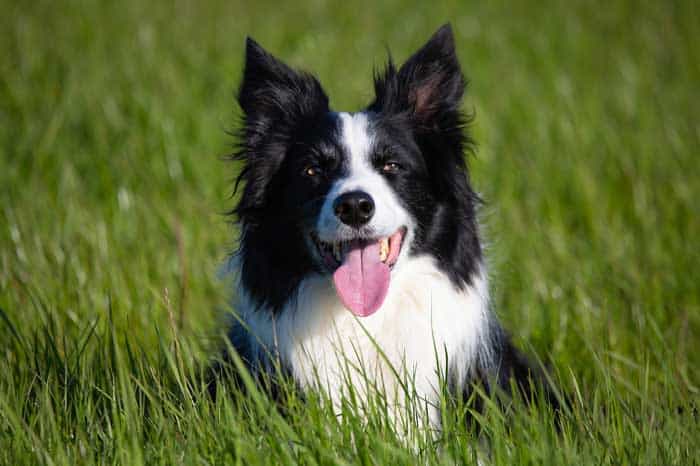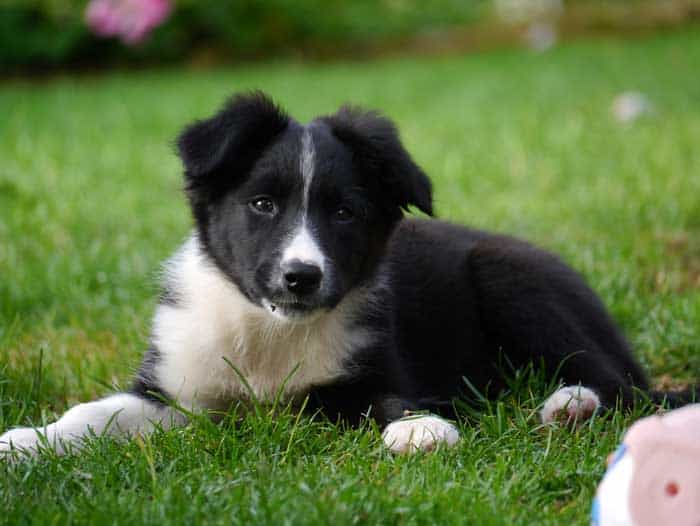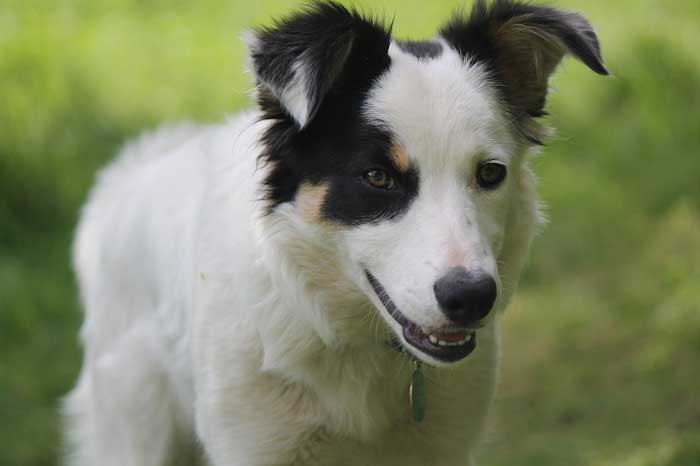If you’re thinking about getting an intelligent and fun dog, I don’t think you can find a breed better than a Border Collie. These charmingly-looking dogs show extreme affection toward their owners.
In terms of activity, they’ll certainly need more than occasional walks. This fact raises a crucial question, are border collies good apartment dogs?
The quick answer is yes, and no! Technically speaking, apartments aren’t the best home for such an active breed. Nevertheless, it can be perfectly fine if you’re willing to put in enough work. How? That’s what we’ll discuss in this article.
Border Collies Breed History
I know what you’re probably thinking. Why should you care about how that breed came out? Well, I won’t be exaggerating by saying that this is the core of the whole article!
Knowing the conditions in which these dogs were bred is the shortest way to know whether they’ll work out for you.
Most breeders think that Border Collies were bred during the 1700s. They presumably came from the cross-breeding of the different progenitors of Icelandic Sheepdogs. They were mostly found around the green fields in the border between England and Scotland, hence the name.
Farmers back then were in extreme need of herding dogs. The population was beginning to skyrocket, which raised the demand for farm goods.
They wanted dogs that were intelligent and agile enough to keep up with a large herd. Thankfully, this is exactly how Border Collies turned out. Over the years, selective breeding kept enhancing these traits, which made these dogs the ideal option for sheep-herding.
What Does a Border Collie Need?
By looking at their history, it becomes evident that border collies crave physical exercise. And I’m not talking about the light walks that might satisfy other dogs. Border Collies need much more than this.
But that’s not all. Besides physical exercise, Collies need constant mental stimulation. They want to be challenged with games and training in which they can apply their magnificent problem-solving skills.
Border Collies In Apartments
Border Collie would be the happiest inside a farm. The randomness of sheep would present endless hours of challenging work.
As you might expect, apartments don’t even come close. The restricted space and the life routine aren’t suitable for a Collie.
But what many owners fail to realize is, it’s not all about the apartment. In fact, Collies would become miserable if they live with a lazy owner on a spacious farm with no sheep to herd.
In other words, a Border Collie won’t mind living in a small apartment if you satisfy his needs in an adequate manner.
Border Collies Training Challenges

Border Collies are beautiful dogs. But their training is so far from being easy. And yes, they can thrive in apartments. But this would actually make your job quite harder.
In this section, we’ll dive deeper into the problems that you might face as a collie owner. I’ll try to propose solutions that should comfort you, the dog, and by extension, your neighbors.
They Are Loud!
Annoying barks are inevitable with all dogs. This is the only way with which they can communicate with their owners. But Border Collies can be way noisier than average.
And again, this would make perfect sense when you consider their history. Collies had to use their powerful voice boxes to keep the sheep lined inside the herd. They also had to bark loudly to notify their distant owners about strangers, wolves, or any other danger.
The problem is that they can’t really distinguish between normal recurring events and actual dangers. They might bark when they hear your neighbors arguing, when you turn on the vacuum cleaner, or even when the doorbell rings.
Solutions
With proper training, Border Collies can learn to ignore the usual stimulants around the household. The following techniques can help you achieve this job.
Distance Counts
If you think about it, you’ll probably realize that most of the noise often comes from a certain place. A shared wall, a particular window, a room filled with appliances, etc. You can easily identify the culprit if you pay close attention to your dog throughout the day.
Once you pinpoint the major problem, try to keep your dog away from it as much as possible. Also, place his crate or playpen in the quietest area of your home. This way, your dog won’t be tempted to dwell on barking when you’re not there to stop him.
Never Reward the Behavior
It’s crucial to stay mindful of what you’re indirectly teaching to your dog. This gets especially true for Border Collies since their smart intellects can pick up behaviors pretty fast.
If your Collie won’t stop barking, never reward him with attention. Don’t touch him, don’t talk to him, and don’t try to distract him with food.
When owners do these actions, dogs correlate between barking and the reward. After a while, they won’t even bark in response to danger. They’ll start barking merely for attention.
What to do? Stay patient. Dogs will stop eventually. Your neighbors will probably hate you in the process, but they’ll be thankful after your dog becomes properly trained.
After your dog stops barking, instantly flood him with attention and treats. Afterward, gradually increase the time he must stay quiet before receiving rewards.
Teach the “Quiet” Command
Teaching your dog to stop barking on command can be somewhat tricky. If done in a wrong manner, you might end up encouraging the barks rather than preventing it.
To start, pick situations where your dog is barking for your attention rather than in response to a stimulus. While he’s barking, stick a treat in front of his mouth while saying your cue word. It doesn’t have to be complicated. A simple “shush” might be easier for a dog to pick up.
Afterward, you can practice the same method with stressful stimuli. But this time, never reward before he accepts the shush command. Otherwise, you’ll be encouraging the barks.
They Don’t Like Being Alone

Generally speaking, dogs dread lonely times. They want to stay with you 24/7. Undoubtedly Border Collies come on top of the list when it comes to affection.
Some breeders think this has got to do with their breeding history. They consider their owners as part of the “flock” they need to protect. When you’re not there, they might freak out thinking that they’ve failed their job.
If this becomes an essential part of their daily life, Border Collies might start developing separation anxiety. Typically, this presents as:
- Excessive howling, barking or whining
- Increased possibility of accidents in spite of being trained
- Chewing and scratching the furniture
- Excessive, nervous pacing
- Drooling more than usual
Solution
Unfortunately, there’s no way around this. If you’re living alone in a small apartment with a typical 8-hour workday, it might be a better idea to consider other dog breeds that tolerate loneliness like:
- Basset Hound
- French Bulldog
- Chihuahua
- Shar Pei
- Pugs
- Bull terrier
- Chow Chow
- Akita Inu
- Boston Terrier
They Embrace Social Activities
Border Collies prefer activities in which they can directly interact with animals and humans. This conforms with their past where they took care of the sheep as their owners did other farming chores.
For this matter, I can’t think of anything better than dog barks. Since leashes aren’t required there, your Collie will be able to properly burn his built-up energy. He can also see other dogs and owners, which should satisfy their social needs.
How often should you take him? You might ask. Well, as a general rule, most dog breeds need from 1 to 2 hours of daily exercise to fight boredom. But the actual frequency might change between individual dogs.
Some Collies might need up to 3 and 4 hours of daily exercise while others may suffice with the regular frequency.
As I said earlier, lack of activity is intolerable for Border Collies. If you can’t allocate enough time, consider less active breeds.
They Might Bully Smaller Animals
Herding dogs can’t tell the difference between flock animals and pets. Their natural instinct is to rise to the occasion and supervise weaker animals around them. For this reason, it’s better to avoid getting a cat, a hamster, turtle, or any other small pet with a Border Collie.
However, if you got your Collie as a puppy, you can find your way around this rule. If you properly socialize him with your other pets, he should consider them as friends rather than members of a flock.
Although Collies are affectionate around humans, babies might encourage their herding nature. Thankfully, they won’t be tempted to hurt them. But they might excessively bark when they’re placed together.
After enough time, your Collie should naturally become affectionate toward the new family member. He’ll be watching him closely, ready to interfere when any danger presents itself.
They Don’t Care About the Weather
The breeding conditions of Border Collies made them incredibly hardy. Come rain, come shine, come snow, come sleet, they were always up to the challenge.
Therefore, be ready for year-round activities. Get used to the idea of having to go out on chilly days to play with your dog. Prepare for late emergency bathroom trips, even if it’s raining.
If you’re uncomfortable with these issues, do yourself a favor and consider another breed early on.
General Care Tips for Border Collies

So far, I’ve covered the main challenges that the apartment owner might face with a border collie. But don’t go adopt one just yet. There is some general stuff everyone should consider before getting a collie, regardless of how wide their homes are.
Use Interactive Toys
Using interactive toys is hands down the best way to keep your Collie occupied when you’re not home. It’s better to pick ones that are capable of holding treats to keep him interested and willing to use their problem-solving skills.
Diet and Nutrition
Taking care of large herds wasn’t an easy job for early Border Collies. As a result, their bodies became programmed to crave food, even if they’re not that hungry.
That said, you have to be extra cautious about how you feed your Collie. If you randomly serve food, they’ll be more likely to put on extra weight. And as you might’ve guessed, this is the worst thing that can happen for a naturally active dog.
As adults, Collies need 2 meals a day, each serving from three-quarters to one cup of dry food. For the best results, choose a product with 25% protein and 15% fat.
On periods of extra activity such as competitions, don’t increase the feeding frequency or amount. If you do so, you’ll be giving your dog more carbs and fats, which is the shortest way for excess weight. Instead, opt for special performance food that focuses primarily on proteins.
Grooming
Border Collies are well known for their thick double coat. But you might actually find Collies with rather shorter and softer coats. Either way, weekly grooming is crucial. It prevents hair from tangling and forming painful, annoying clumps.
Grooming also helps in distributing the coat’s oils evenly, keeping the dog healthy and lice-free.
Bathing, on the other hand, should be done at a much less frequency such as once every 4 months. You can increase the rate if your Collie starts to smell earlier.
Nails and Teeth
If you provide your Collie with enough exercise, his nails should naturally wear down without your help. Nevertheless, inspect them occasionally and trim them if needed to ensure your dog is comfortable.
Just like any dog, you must regularly brush your Collies teeth. Ideally, this should happen daily to prevent bad breath and gum diseases. However, you can bring this down to once every 3 days if you don’t have enough time.
Final Thoughts
Are Border Collies good apartment dogs? It depends. In fact, the question should be about the owner’s activity rather than the nature of his home. A Border Collie won’t tolerate a lazy owner in a spacious villa, for instance.
If you’re ready to dedicate enough exercise time, taking care of a Collie won’t be that hard. If you properly train him on being quiet, he won’t annoy the neighbors with every stimulant that comes his way.
Last but not least, don’t ignore the importance of a well-balanced diet. Consult with your vet to avoid the risk of overfeeding your Collie.
Resources
- How to Care for a Border Collie by Daily Puppy
- Puppy Training Tips for Border Collies by The Nest

